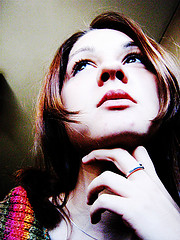The Anxiety Epidemic: Natural Ways to Find Some Relief
 Harvard Medical School has just reported that there are now over 15 million American people living with Social Anxiety Disorder. That's a huge amount of suffering individuals, each and every one of them a unique person struggling with genuine anxiety induced symptoms like palpitations, feeling faint or dizzy, shortness of breath, sweating, and fear of losing control in social situations.
Harvard Medical School has just reported that there are now over 15 million American people living with Social Anxiety Disorder. That's a huge amount of suffering individuals, each and every one of them a unique person struggling with genuine anxiety induced symptoms like palpitations, feeling faint or dizzy, shortness of breath, sweating, and fear of losing control in social situations.
Healthline.com recommends 4 Techniques That Really Work to Reduce Stress and Anxiety. The techniques include deep diaphragmatic breathing and gradual relaxation.
Here on Living by Design we have some free relaxation MP3s designed to guide listeners step-by-step through breathing and relaxation exercises - when you're feeling anxious it's hard to figure out how to get calm for yourself and that's why we made these guided MP3's, the idea behind them being that you can listen to them and follow along while you get guidance and support on how to get calm again.
Are You Overworked and Under-protected?
 According to a report published in the Washington Post in January of this year: "54 percent of Americans are concerned about the level of stress in their everyday lives".
According to a report published in the Washington Post in January of this year: "54 percent of Americans are concerned about the level of stress in their everyday lives".
Juliet Schor Pd.D, author of Overworked American: The Unexpected Decline of Leisure
But there are still only 52 weeks in a year so where does that time come from? Dr Schor says it comes from what was previously sleep time, leisure time, and what she refers to as the "time for self" category.
Anxiety Relief: Why Getting More Stuff is not the Answer
 More and more of us turn to the acquisition of objects to numb our less than pleasant emotions. Shoes, clothes, gadgets, even cars - you name it, we'll buy it. Time and again research tells us that once we have the basics covered: food, clothes and shelter, extra wealth and the endless variety of stuff we can buy with it really doesn't make us happy. Yet, when anxiety levels go up, many of us get the urge to indulge in "retail therapy" for relief.
More and more of us turn to the acquisition of objects to numb our less than pleasant emotions. Shoes, clothes, gadgets, even cars - you name it, we'll buy it. Time and again research tells us that once we have the basics covered: food, clothes and shelter, extra wealth and the endless variety of stuff we can buy with it really doesn't make us happy. Yet, when anxiety levels go up, many of us get the urge to indulge in "retail therapy" for relief.
Ironically it's the sheer volume of shop-aholics spoils that prove the point that buying stuff doesn't make you feel better. If it did, you'd feel good for some time, and that's where the buying would end, but it doesn't; it only makes you feel good for a short while and then you need to repeat the behaviour for another brief burst of relief. Maybe it's the anticipation, the planning, or the stepping out of a shop with the item of perceived desire that gives diversion from anxiety for a while. But whatever it is that drives the desire to acquire is not addressed by the act of accumulation. Soon that purchase becomes just another thing, another debt increasing, space decreasing object. And then comes the urge to do it all over again.
5 Natural Ways to Stop Anxiety & Calm Your Mind
Here are 5 simple ways to calm your mind and reduce anxiety...